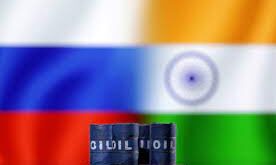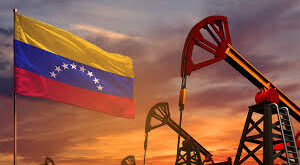The development of joint oil and gas fields is the mainstay of Iran`s petroleum industry. Oil Minister Bijan Namdar Zanganeh said. underlining that shared fields with Iraq and Qatar top Tehran`s priority list.
South Pars Gas Field as well as oilfields in the West Karun region are our most important fields. Zanganeh made the statements on state TV on Tuesday. the Oil Ministry`s official news service Shana reported.
South Pars. known as the North Dome in the Qatari side. is the world`s largest gas field shared by Iran and Qatar in the Persian Gulf. The field holds an estimated 40 trillion cubic meters of natural gas. or roughly 8% of the world’s reserves and approximately 18 billion barrels of condensate.
West Karun is the name of an oil-rich region in the southern Khuzestan Province that includes several giant oilfields. including Azadegan. Yaran and Yadavaran. with the first two divided into north and south projects.
Zanganeh said some of the less-developed joint fields. such as those straddling Iran and Saudi Arabia. will be tendered.
Iran and Saudi Arabia have a handful of shared fields. namely Farzad A and Farzad B—which were discovered by Indians in 2008—as well as Arash gas field.
Arash field. known as Aldorah in Kuwait. lies southwest of Kharg Island. Geographically. the field is shared between Iran and Kuwait. but Saudi Arabia has laid claim to the resource in recent years. according to the Oil and Gas Journal.
The Oil Ministry hopes to finalize a financial framework over the next year to sign buyback contracts for these fields. Zanganeh said.
He also referred to plans to draw crude oil from the oil layer of South Pars. using a floating production. storage and offloading unit that is to be deployed above the oil layer.
Once the FPSO unit is in position. crude production from South Pars will begin at a rate of 35.000 barrels per day. But we are keen to raise the output to 100.000 bpd. Zanganeh said.
The South Pars` oil layer is located 130 kilometers off Iran`s coast in the Persian Gulf with an estimated 7 billion barrels of oil in place. Iran expects to start production with 20.000-35.000 barrels a day.
Estimates show that Iran`s in-place oil reserves are around 800 billion barrels. with the average rate of recovery from all oilfields at 28%.
It is far from sufficient. It`s not enough to just drill wells and draw crude … We need advanced technology to develop the oilfields and boost the rate of recovery. Zanganeh noted. We currently need knowhow more than investment.
According to reports. Azadegan and Yadavaran fields. only two of the oilfields in West Karun. hold approximately 67 billion barrels of oil. but Iran can only access 4.5 billion barrels with its existing technology and recovery rate.
Zanganeh said the recovery rate at Azadegan field is around 7%. but boosting the cap to 17% would increase recoverable reserves by 6.7 billion barrels. or roughly $340 billion in revenues given the current crude oil prices.
Tehran has significantly ramped up crude exports since the lifting of international sanctions last year to wrest back the market share it lost when financial and trade restrictions were in place.
Oil exports have reached 2.8 million bpd from just above 1.2 million bpd in mid-2013. when President Hassan Rouhani took office.
According to Zanganeh. 60% of oil consignments go to Asia and the rest to oil terminals in Europe.
Government data show Tehran produced more than 3.9 million barrels on average in the previous month.
Zanganeh said Tehran and French energy giant Total are thrashing out the details of a contract to develop Phase 11 of South Pars following a preliminary agreement signed in November.
Based on the agreement. Total is to raise gas production from Phase 11 to around 51 million cubic meters per day in 20 years in tandem with China National Petroleum Corp and an Iranian partner.
We are expecting to finalize the agreement with Total in two months. said the minister.
Zanganeh also reflected on Total CEO Patrick Pouyanne`s statements last week that the company`s future in Iran`s market depends on the renewal of US sanctions waivers.
Total will surely continue to operate under the European Union policies. but to me. it is not clear why they said so. However. we are proceeding with the technical and commercial aspects of the deal. he said.
Pouyanne had said that either the waivers will be renewed or they (the US) decide to tear up the Iran nuclear agreement. In that case. we`ll not be able to work in Iran.

 Iran Energy News Oil, Gas, Petrochemical and Energy Field Specialized Channel
Iran Energy News Oil, Gas, Petrochemical and Energy Field Specialized Channel



